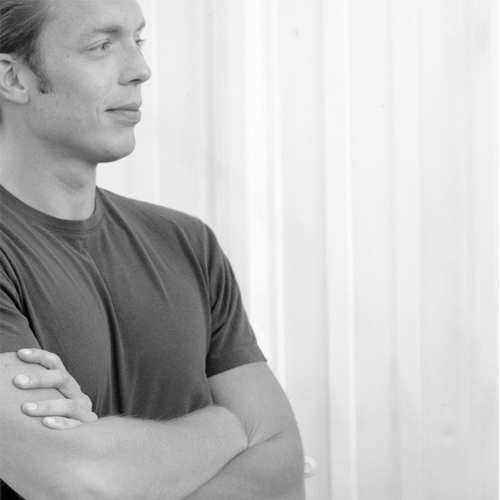Whether it’s a lack of time, energy or cash, there are a million excuses that can get in the way of our staying fit. After all, exercise can be difficult to fit into our busy schedules. But self-proclaimed minimalist and best-selling author Joshua Fields Millburn is calling bluff on all of those excuses and he’s going to tell you why.
Millburn, 31, shares his “minimalist” lifestyle on The Minimalists, a blog he co-authors with longtime friend Ryan Nicodemus.
The pair define minimalism as ‘a shedding of life’s excess in favor of what’s important,’ which allows them to ‘spend less time and money on material possessions and focus instead on health, relationships, and pursuing their passions, among other things.’
Minimalism has affected all areas of Millburn’s life, including his fitness routine. Millburn, who once counted himself as “doughy, flabby and weak” at the age of 28, created a set of simple exercises that require just 18 minutes of his time and yield measurable results. His daily workouts paired with a clean diet have allowed him to shed 70 pounds and be in the best shape of his life.
We spoke with Millburn about how minimalism has affected his view on health and fitness, and how it’s helped propel him toward optimum health.
What inspired you to get healthy?
I felt like crap. I was tired and sluggish and it was harder to enjoy my life. To top it off, I looked like crap, too; I was 70 pounds heavier than I am now. I realized that without my health, nothing else really matters anyway.
How has minimalism shaped your approach to health and fitness?
I do simple exercises that I enjoy. I discovered that I didn’t need to hit the gym for two hours a day to get fit. I can exercise for less than 20 minutes and if I do that every day, it makes a massive difference in my life.
In your article “Minimalism is Healthy: How I Lost 70 Pounds,” you recommend associating junk food with pain to gain leverage not to eat poorly. How has this approach helped you clean up your diet?
For a long time, I treated food as entertainment—as a sort of pacifier. No more. Now food is nutrition; it’s my fuel. I had to stop thinking of it as entertainment. That doesn’t mean I don’t enjoy my meals. I enjoy them immensely. I just don’t eat to pacify myself any longer.
How did you formulate your “18 minute workout” plan? What do you do when you get bored with it?
In addition to my daily 18 minutes, I walk a lot, which is my form of mediation—just me and my thoughts. That said, I don’t get bored with my exercises, because I push myself, which is never boring.
Diet is clearly a huge part of staying fit. In brief, how would you describe your approach to a healthy diet?
Diet is so important. I eat a lot of greens, a lot of fruits and vegetables. Other than fish, I don’t eat meat, nor do I eat sugar or bread. I avoid dairy and processed foods. And I don’t have “cheat days.”
You argue that exercise gives us more time rather than less time, like most people assume. Can you elaborate/expound on this idea?
When I was fat (yes I was fat; let’s call a spade a spade), I was tired and I would often crash in the afternoons or evenings. I don’t crash anymore; I have more energy at age 31 than I ever did in my corpulent 20s. I also require less sleep these days, which gives me extra time to write/read/think/live life.
————————————–
Millburn closed our interview with this simple encouragement: “Health is a lifetime commitment. You’ll never ‘get there.’ Thus, the key is to make tiny improvements each day, incremental improvements that’ll drastically change your health in the long run. It’s amazing what you’ll see in the rearview after a month, a year, two years of traveling down the right path.”
Count us encouraged.
Also Read:
Is Barefoot Running for Everyone? Your Questions Answered
